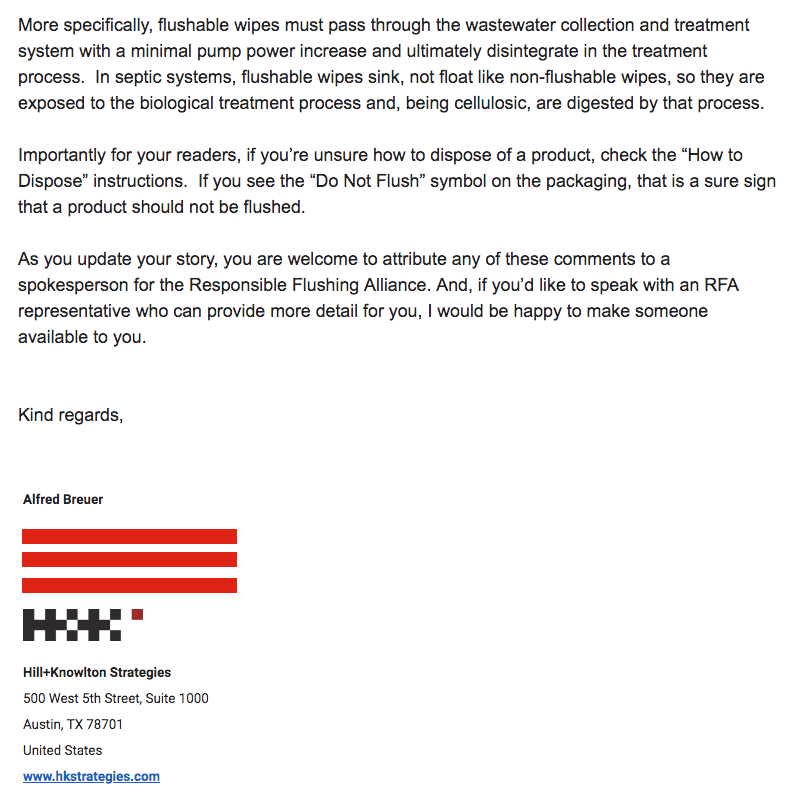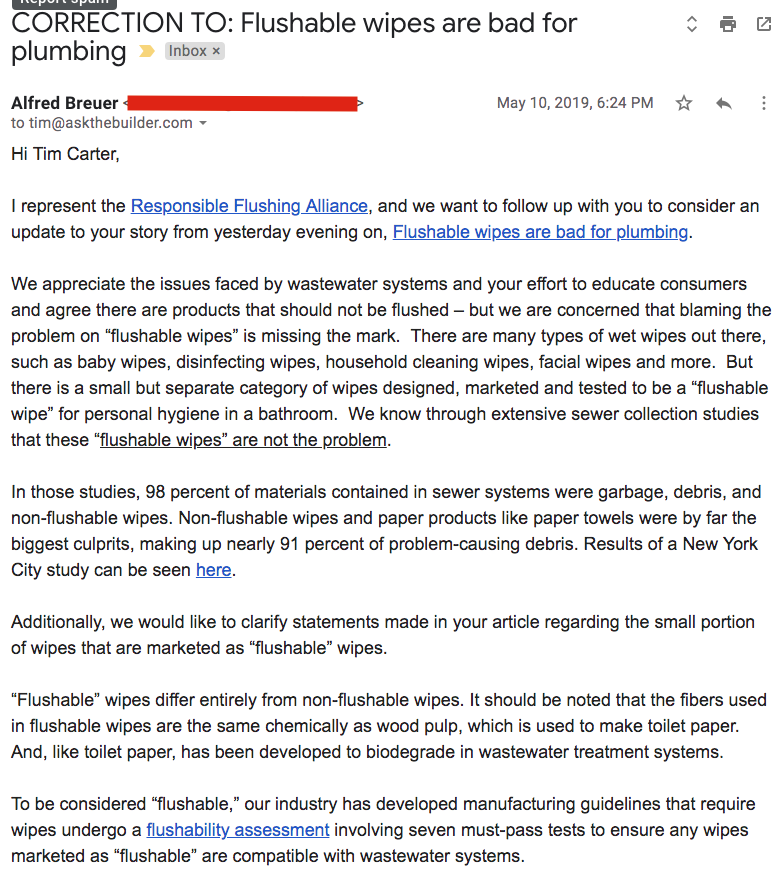Responsible Flushing Alliance Letter to AsktheBuilder.com
This is the actual text I received from the public relations person who represents the Responsible Flushing Alliance. This letter, in the form of an email, was in response to my Flushable Wipes Clog Sewers column that was published by many newspapers all across the USA.
Responsible Flushing Alliance - Letter Challenging AsktheBuilder.com Column
I've got screenshots of the actual email below the following text:
Hi Tim Carter,
I represent the Responsible Flushing Alliance, and we want to follow up with you to consider an update to your story from yesterday evening on, Flushable wipes are bad for plumbing.
We appreciate the issues faced by wastewater systems and your effort to educate consumers and agree there are products that should not be flushed – but we are concerned that blaming the problem on “flushable wipes” is missing the mark. There are many types of wet wipes out there, such as baby wipes, disinfecting wipes, household cleaning wipes, facial wipes and more. But there is a small but separate category of wipes designed, marketed and tested to be a “flushable wipe” for personal hygiene in a bathroom. We know through extensive sewer collection studies that these “flushable wipes” are not the problem.
In those studies, 98 percent of materials contained in sewer systems were garbage, debris, and non-flushable wipes. Non-flushable wipes and paper products like paper towels were by far the biggest culprits, making up nearly 91 percent of problem-causing debris. Results of a New York City study can be seen here.
Additionally, we would like to clarify statements made in your article regarding the small portion of wipes that are marketed as “flushable” wipes.
“Flushable” wipes differ entirely from non-flushable wipes. It should be noted that the fibers used in flushable wipes are the same chemically as wood pulp, which is used to make toilet paper. And, like toilet paper, has been developed to biodegrade in wastewater treatment systems.
To be considered “flushable,” our industry has developed manufacturing guidelines that require wipes undergo a flushability assessment involving seven must-pass tests to ensure any wipes marketed as “flushable” are compatible with wastewater systems.
More specifically, flushable wipes must pass through the wastewater collection and treatment system with a minimal pump power increase and ultimately disintegrate in the treatment process. In septic systems, flushable wipes sink, not float like non-flushable wipes, so they are exposed to the biological treatment process and, being cellulosic, are digested by that process.
Importantly for your readers, if you’re unsure how to dispose of a product, check the “How to Dispose” instructions. If you see the “Do Not Flush” symbol on the packaging, that is a sure sign that a product should not be flushed.
As you update your story, you are welcome to attribute any of these comments to a spokesperson for the Responsible Flushing Alliance. And, if you’d like to speak with an RFA representative who can provide more detail for you, I would be happy to make someone available to you.
Kind regards,
Alfred Breuer
Hill+Knowlton Strategies
Austin, TX


One Response to Responsible Flushing Alliance Letter to AsktheBuilder.com